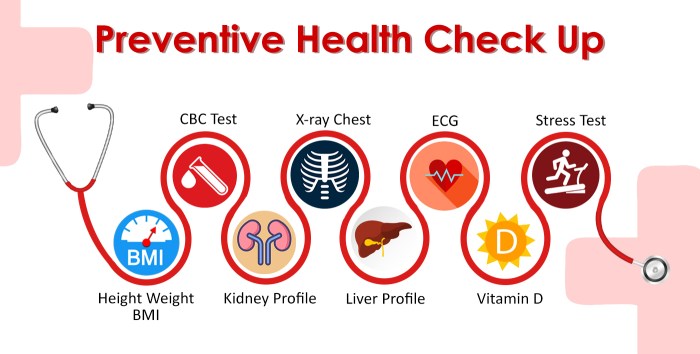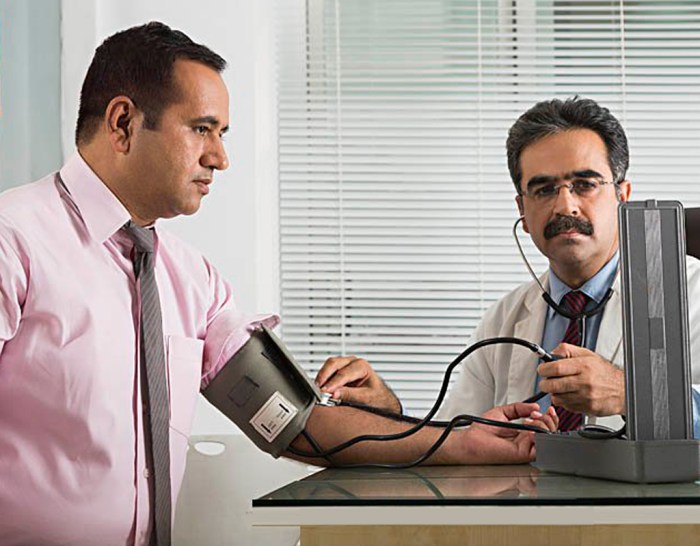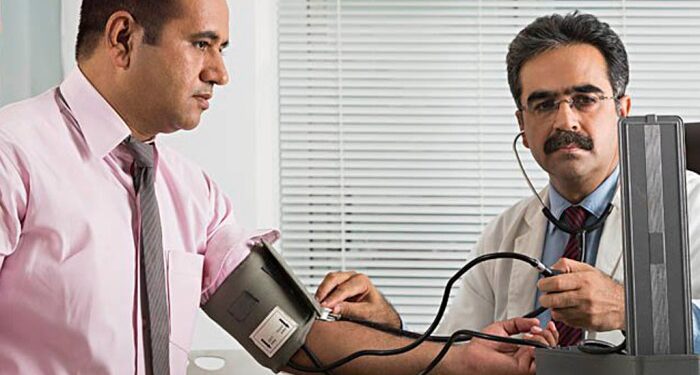Exploring the realm of Preventive health checkups: What you need to know, this introduction delves into the importance of these checkups and their impact on overall well-being. From common screenings to the benefits of early detection, this topic is crucial for maintaining good health.
Detailing the various types of checkups, age-specific recommendations, and the preparation required, this discussion aims to provide a comprehensive guide for individuals seeking to prioritize their health proactively.
Importance of Preventive Health Checkups
Regular preventive health checkups play a crucial role in maintaining overall well-being and detecting potential health issues early on. By undergoing routine screenings and tests, individuals can take proactive steps towards preventing diseases and maintaining a healthy lifestyle.
Common Preventive Health Screenings and Tests
- Blood pressure monitoring: Regular blood pressure checks help in identifying hypertension, a common risk factor for heart disease and stroke.
- Cholesterol level testing: Screening for cholesterol levels can help in preventing cardiovascular diseases.
- Blood glucose tests: Monitoring blood sugar levels is essential for early detection of diabetes.
- Colonoscopy: Recommended for individuals over the age of 50 to screen for colorectal cancer.
- Mammograms: Essential for women to detect breast cancer at an early stage.
Benefits of Regular Preventive Health Checkups
Regular preventive health checkups offer numerous benefits, including:
- Early detection of health issues: Through routine screenings, conditions can be identified at an early stage, allowing for timely intervention and treatment.
- Preventive measures: By identifying risk factors early on, individuals can make lifestyle changes to prevent the onset of diseases.
- Cost-effective healthcare: Preventive screenings can help in reducing healthcare costs associated with treating advanced-stage diseases.
- Promotion of overall well-being: Regular checkups contribute to maintaining good health and well-being, leading to a higher quality of life.
Types of Preventive Health Checkups
Regular health checkups are crucial for maintaining overall well-being and catching any potential health issues early on. However, there are different types of preventive health checkups available to cater to specific needs and concerns.
General Health Checkups vs. Specialized Screenings
General health checkups typically include basic tests like blood pressure, cholesterol, blood sugar levels, and overall physical examination. These checkups are recommended for everyone as part of routine healthcare.On the other hand, specialized screenings focus on specific areas of health, such as cardiac or cancer screenings.
Cardiac screenings may include tests like ECG, stress test, or echocardiogram to assess heart health. Cancer screenings, depending on the type of cancer, may involve mammograms, colonoscopies, or Pap smears to detect cancer at an early stage.
Age-Specific Preventive Health Screenings
Different age groups have varying healthcare needs, and age-specific preventive health screenings are recommended to address these needs effectively.
- For children and adolescents, regular checkups focus on growth and development, immunizations, and screenings for conditions like vision or hearing problems.
- Adults should undergo screenings for conditions like hypertension, diabetes, and cholesterol levels, as well as cancer screenings based on risk factors.
- As individuals age, additional screenings such as bone density tests, cognitive assessments, and screenings for conditions like osteoporosis or dementia may be recommended.
Remember, preventive health checkups play a crucial role in maintaining good health and catching potential issues early, leading to better treatment outcomes. It is essential to consult with healthcare professionals to determine the most appropriate preventive health screenings based on individual health history and risk factors.
Preparation for Preventive Health Checkups

When preparing for a preventive health checkup, there are several steps individuals should take to ensure the process goes smoothly and effectively. It is essential to follow guidelines provided by healthcare providers to obtain accurate results and valuable insights into one's health status.
Fasting Requirements
- Follow fasting instructions provided by your healthcare provider, which may involve refraining from eating or drinking for a specific period before the checkup.
- Avoid consuming any food or beverages, except water, during the fasting period to prevent any interference with test results.
Medication Adjustments
- Inform your healthcare provider about all medications you are currently taking, including prescription drugs, over-the-counter medications, and supplements.
- Follow instructions regarding medication adjustments before the checkup, as some medications may need to be temporarily stopped or adjusted for accurate test results.
Sharing Medical History and Concerns
- Provide a detailed medical history to your healthcare provider, including past illnesses, surgeries, allergies, and any ongoing health concerns.
- Discuss any specific symptoms or changes in your health that you have noticed, as this information can help healthcare providers tailor the checkup to address your individual needs.
Cost and Coverage of Preventive Health Checkups
Regular preventive health checkups are crucial for maintaining overall well-being and catching any potential health issues early on. However, the cost and coverage of these screenings can vary depending on several factors.Insurance coverage for preventive health screenings can vary based on the type of insurance plan you have.
Some insurance plans may fully cover certain preventive services, such as annual physical exams, mammograms, and vaccinations, while others may require you to pay a portion of the cost out-of-pocket.
Out-of-Pocket Costs for Different Types of Health Checkups
When it comes to preventive health screenings, out-of-pocket costs can vary depending on the type of screening and your insurance coverage. Some common preventive health screenings and their typical out-of-pocket costs include:
- Annual physical exam: Usually covered by insurance, but copays or deductibles may apply.
- Mammogram: Covered by insurance for women over a certain age, but copays or deductibles may apply.
- Colonoscopy: Covered by insurance for individuals at a certain age or risk level, but copays or deductibles may apply.
- Blood tests: Coverage may vary depending on the specific tests ordered and your insurance plan.
Resources for Free or Discounted Preventive Health Screenings
There are resources and programs available that offer free or discounted preventive health screenings for individuals who may not have insurance coverage or who are unable to afford the out-of-pocket costs. Some options to consider include:
- Community health clinics: Many community health clinics offer free or low-cost preventive health screenings for individuals in need.
- Government-funded programs: Programs like the National Breast and Cervical Cancer Early Detection Program provide free or low-cost screenings for breast and cervical cancer.
- Employer wellness programs: Some employers offer wellness programs that include free or discounted preventive health screenings as part of their benefits package.
Follow-up Actions after Preventive Health Checkups

After completing a preventive health checkup, it is essential to take the necessary follow-up actions to maintain good health and address any potential issues identified during the checkup. Understanding how to interpret test results and following up with healthcare providers is crucial for optimal health management.
Interpreting Test Results
- Review the results with your healthcare provider to understand what they mean for your health.
- Ask questions about any abnormal findings or areas of concern.
- Discuss lifestyle changes or treatments that may be recommended based on the test results.
Taking Necessary Follow-up Actions
- Follow through with any recommended treatments, medications, or lifestyle changes as advised by your healthcare provider.
- Schedule any additional tests or screenings that may be necessary based on the results of the preventive health checkup.
- Maintain open communication with your healthcare provider and report any new symptoms or concerns that arise.
Role of Healthcare Providers
- Healthcare providers play a crucial role in recommending further tests or treatments based on the results of the preventive health checkup.
- They can provide guidance on managing any health conditions identified during the checkup.
- Healthcare providers can monitor your health over time and adjust treatment plans as needed to ensure optimal health outcomes.
Conclusion
In conclusion, understanding the significance of follow-up actions post-checkup and the costs involved in preventive health screenings is key to making informed decisions about one's well-being. By staying informed and proactive, individuals can ensure they are on the right path towards a healthier future.
Frequently Asked Questions
What are some common preventive health screenings?
Common preventive health screenings include blood pressure checks, cholesterol tests, mammograms, and colonoscopies.
How should individuals prepare for a preventive health checkup?
Individuals should fast if necessary, adjust medications as advised, and share relevant medical history with healthcare providers.
Does insurance cover preventive health screenings?
Insurance coverage for preventive health screenings may vary, so it's important to check with your provider.
What should individuals do after completing a preventive health checkup?
After a checkup, individuals should follow any recommendations given by healthcare providers, interpret test results, and take necessary follow-up actions.



